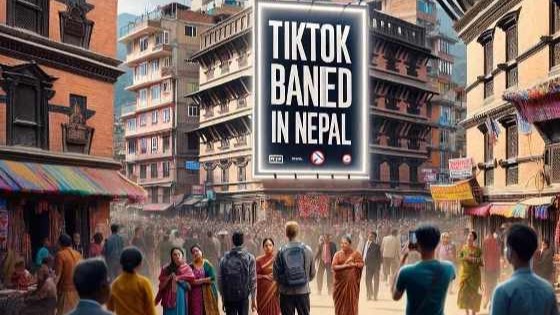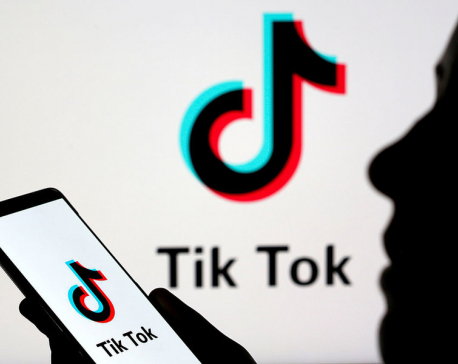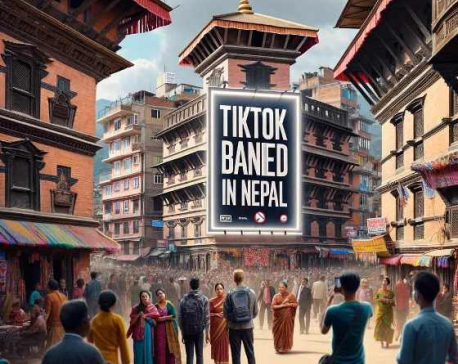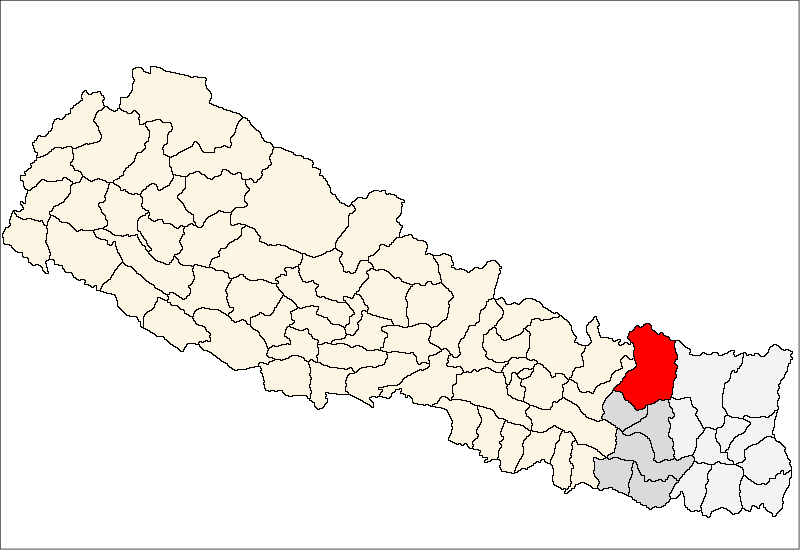
OR
Opinion
TikTok Ban: Communist Delusion and Misguided Priorities
Published On: December 22, 2023 09:30 AM NPT By: Bimal Pratap Shah

Many argue that this move reflects a governance approach steeped in an outdated communist ideology
The imposition of bans on both TikTok and cryptocurrency poses a considerable challenge for our nation, particularly at this critical juncture when the global community actively advocates for the promotion of the creative economy—an emphasis integral to post-COVID-19 economic recovery efforts.
In 2022, the creative economy showcased its might, boasting an impressive value of at least US $1.5 trillion and firmly establishing itself as one of the world's most rapidly expanding sectors.
However, a contrasting narrative unfolds as Nepal recently took a controversial step by imposing a ban on TikTok, a platform integral to the creative economy's vitality. The reasoning behind this decision is linked to concerns about the platform's content potentially disrupting 'social harmony.' Many argue that this move reflects a governance approach steeped in an outdated communist ideology, reminiscent of the hyper-industrialization era of the 18th century when labor took center stage.
This perspective overlooks the myriad influencers, artists, celebrities, small businesses, and entrepreneurs who utilize the platform to create value and make substantial contributions to the GDP-B, where 'B' represents the welfare contributions of the digital economy. It's essential to note that the proliferation of new and free goods in the digital economy is not adequately measured in our current national accounts.
It's worth noting that communism gained traction in Nepal during the 80s and 90s, aligning with the country's cautious venture into industrialization after primarily existing as an agrarian society since its inception. However, applying the same ideological framework to constrain the creative economy in the 21st-century digital landscape proves counterproductive. This reality is accentuated by the current economic conditions and the significant recent surge in the departure of the younger generation from the country.
The imposition of bans on both TikTok and cryptocurrency poses a considerable challenge for our nation, particularly at this critical juncture when the global community actively advocates for the promotion of the creative economy—an emphasis integral to post-COVID-19 economic recovery efforts.
In 2021, the 74th United Nations (UN) General Assembly declared it the International Year of Creative Economy for Sustainable Development, urging nations to align their priorities accordingly as the creative economy revolves around creative assets with the potential to drive economic growth—a sector that, before the pandemic, exhibited remarkable global growth. Preceding the disruptions caused by COVID-19, the creative economy stood out as one of the fastest-growing sectors worldwide. According to the World Bank reports, the cultural and creative industries, often referred to as the orange economy, played a pivotal role, contributing to approximately 50 million jobs globally. Notably, these industries provided employment for more young people (15–29-year-olds) than many other sectors.
In the face of pressing challenges in the labor market, particularly impacting youth and vulnerable demographics, creative and cultural jobs emerge as a promising avenue. These fields not only offer economic opportunities but also provide a means to foster more inclusive and resilient growth. Navigating these uncertain times makes preserving and supporting the creative economy crucial for Nepal's overall well-being and development. Observing significant growth, emerging platforms like TikTok and Instagram have evolved into hubs for diverse content creators
Anticipated to exceed a staggering US $72 billion by 2024, this dynamic and rapidly growing industry is poised for substantial expansion. To put this remarkable figure into perspective, the number is twice the gross domestic product (GDP) of Nepal.
According to Adobe's study, there has been a remarkable influx of over 165 million creators entering the global creator economy in the last two years, with notable growth observed in countries such as the U.S., Spain, South Korea, and Brazil. This surge underscores the universal appeal and widespread participation in creative endeavors, highlighting the truly global nature of the creative economy.
Amidst Nepal's stunning landscape and a wealth of talented creators, the country is poised to harness the benefits of the creative economy. The combination of natural beauty and creative prowess positions Nepal as an exciting hub for creative endeavors, offering both inspiration and opportunities for growth in this thriving global landscape.
However, amid this surge in creative vitality, the nation's regressive policies are evolving under a government embracing a communist, or, as they prefer to term it, a socialist mindset. This ideological stance manifests in the comprehensive prohibition of both cryptocurrency and TikTok, representing a distinctive approach that diverges from the global trend of fostering creativity and innovation.
It is crucial for the Nepali people to understand that imposing a ban on platforms like TikTok or other creative outlets is comparable to the prohibition of factories in the 17th century. Such a regressive move is challenging to fathom, as it would not only result in the loss of millions of jobs but also render the nation less competitive on a global scale.
Consider this: just as 17th-century factories were crucibles of innovation and economic transformation, today's creative platforms function as the virtual workshops of the 21st century. These platforms not only harbor individual creative endeavors but also drive economic progress through innovation, entrepreneurship, and the establishment of entirely new industries. Understanding this concept and shift in paradigm can be challenging for communists/Marxists. It is important to educate them.
Marxism, in its essence, is a socio-economic and political theory that emphasizes the struggle for the rights and interests of the working class, or the proletariat. Developed by Karl Marx and Friedrich Engels, Marxism advocates for the idea that historical development is driven by class struggle, particularly between the working class and the bourgeoisie (capitalist class). The goal is to eliminate social inequality and create a system where each individual's contribution to society is valued and rewarded equitably.
Content creation stands as a contemporary form of craftsmanship. A ban on creative channels, exemplified by platforms like TikTok, not only restrains artistic expression but also obstructs Nepal's flourishing creative economy, impeding a multitude of potential innovations and opportunities for economic growth. Assessing these restrictions through the lens of economic history underscores the significance of embracing and nurturing the creative forces propelling our digital age.
It is crucial for the content creators of Nepal to unite against this tyranny.
You May Like This

Communism's Clash with the Creative Economy
TikTok is not causing social disharmony but rather exposing the decadence in Nepali society, highlighting unprecedented levels of bad governance... Read More...

Analyzing Nepal’s Ban on TikTok
On November 13, Nepal's Minister of Communication and Information Technology, Rekha Sharma, stated that the Cabinet had decided to ban... Read More...

TikTok expresses dissatisfaction after ban in Nepal
KATHMANDU, Nov 17: The managing company of TikTok, has written a seven-point letter to Nepal expressing its displeasure over the... Read More...





Just In
- Govt to provide up to Rs 500,000 for building houses affected by natural calamities
- China announces implementation of free visa for Nepali citizens
- NEPSE gains 14.33 points, while daily turnover inclines to Rs 2.68 billion
- Tourists suffer after flight disruption due to adverse weather in Solukhumbu district
- Vote count update: NC maintains lead in Ilam-2
- NAC's plane lands at TIA after its maintenance in Israel
- Indian Ambassador assures of promoting India's investment in Nepal
- Freak accident involving self-made pistol leaves young man injured in Banke















Leave A Comment